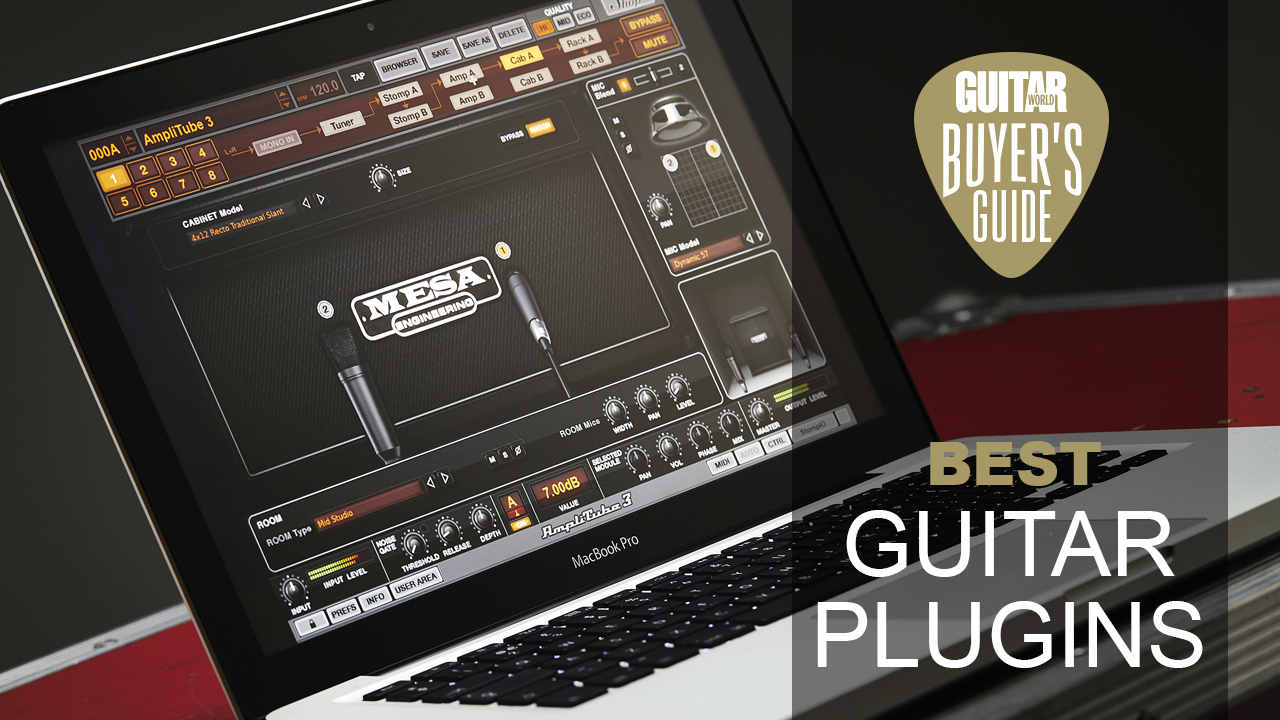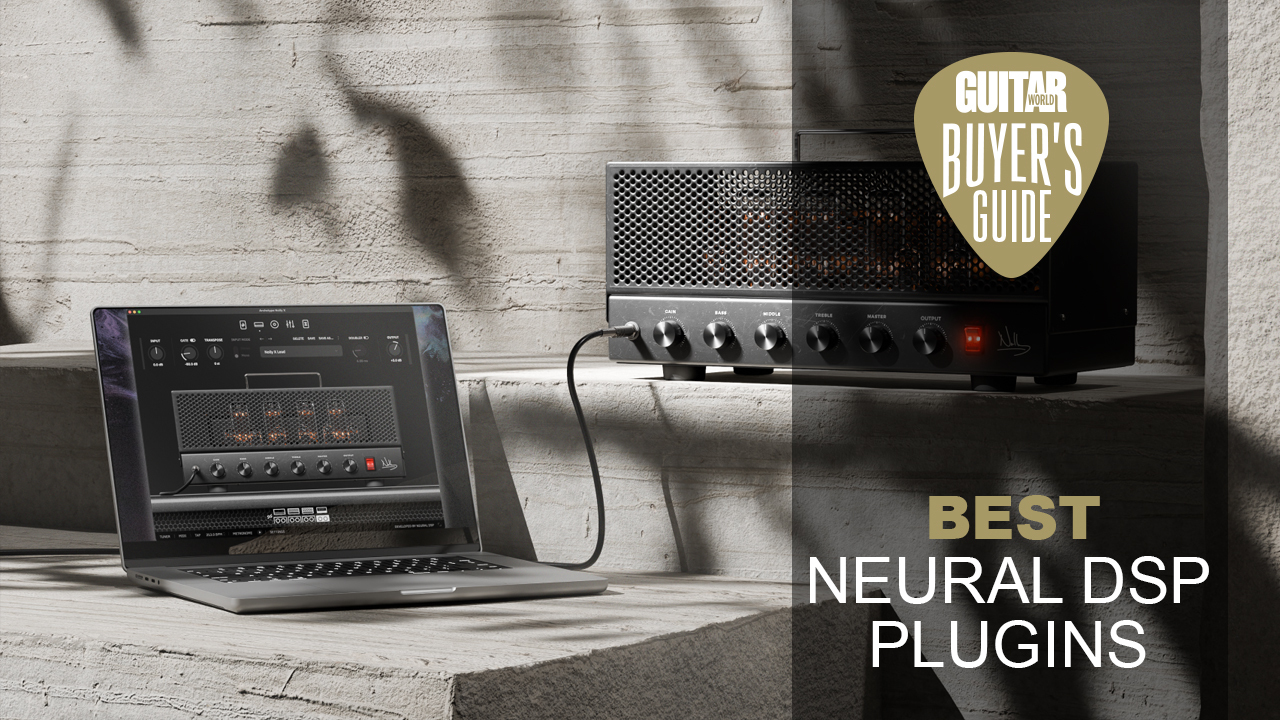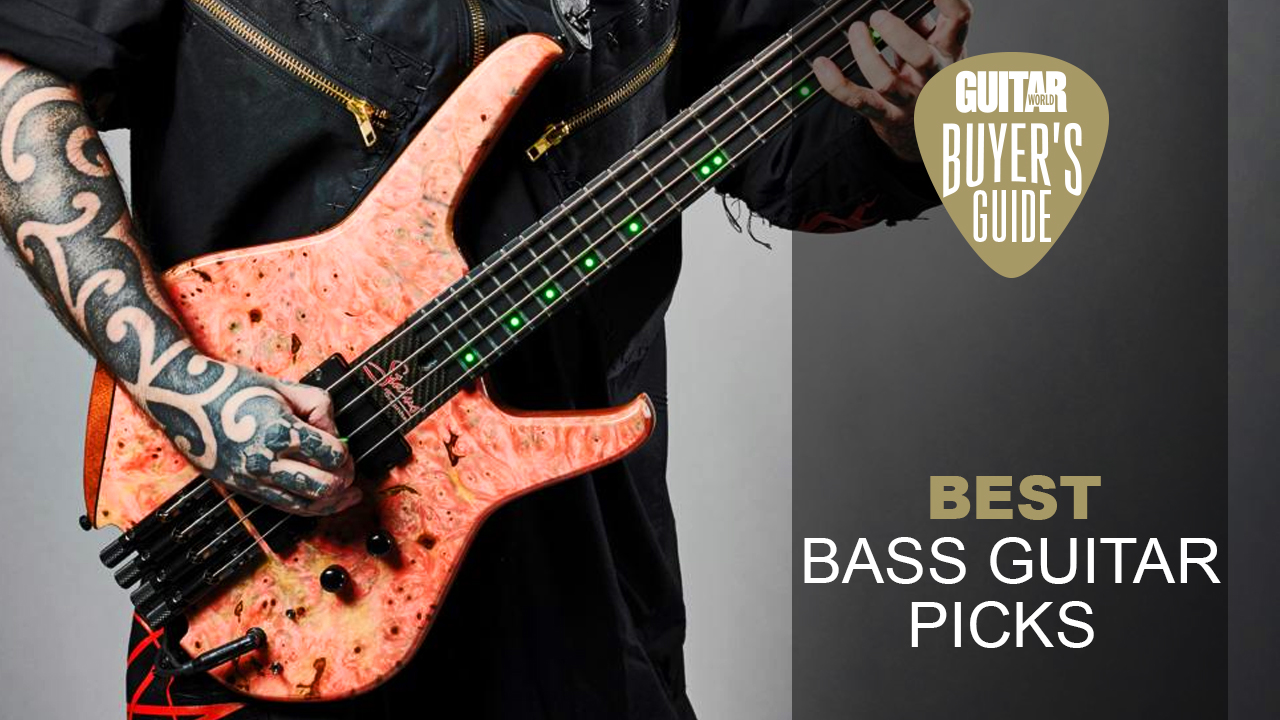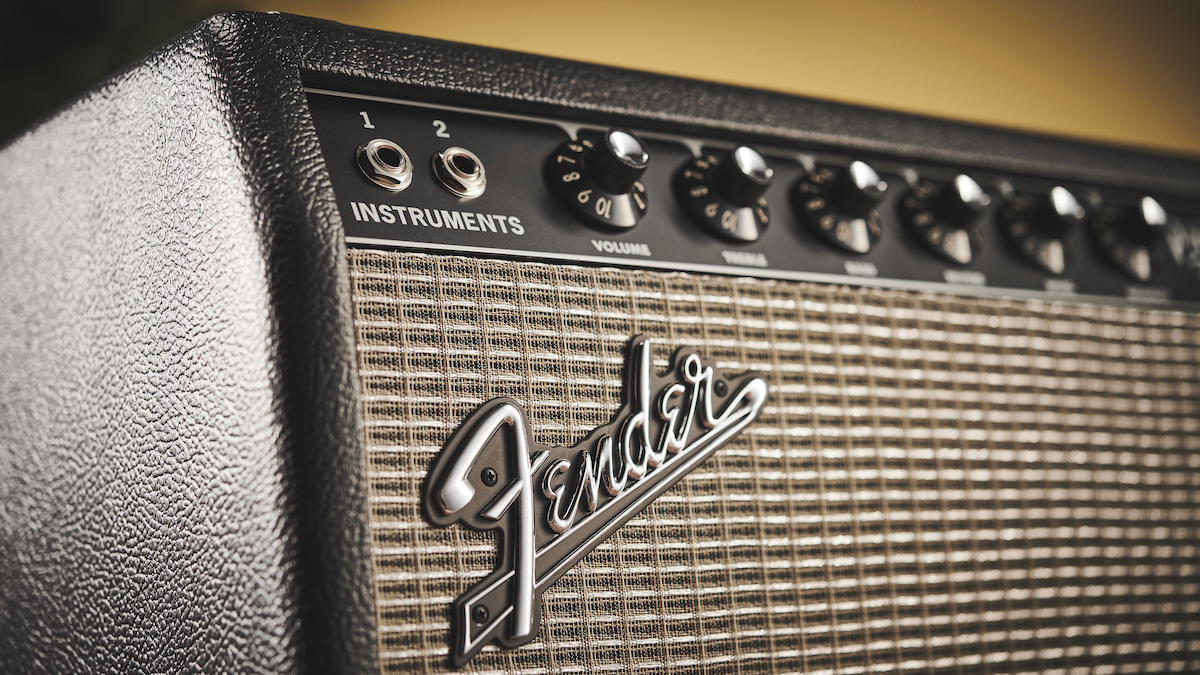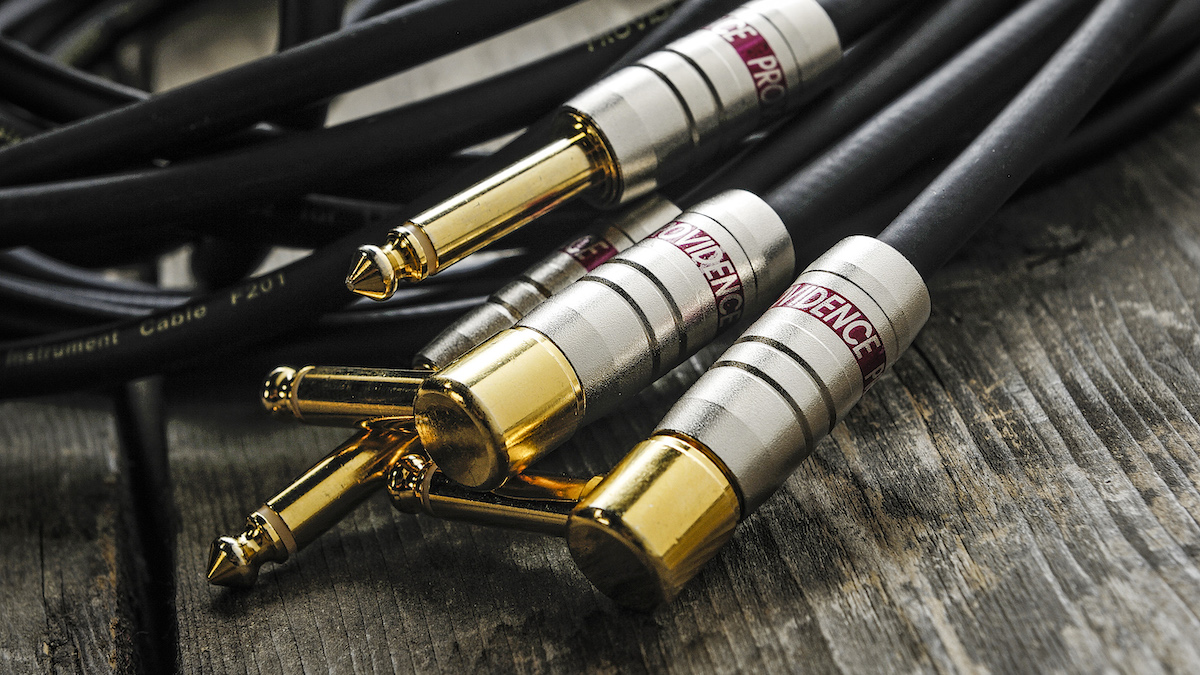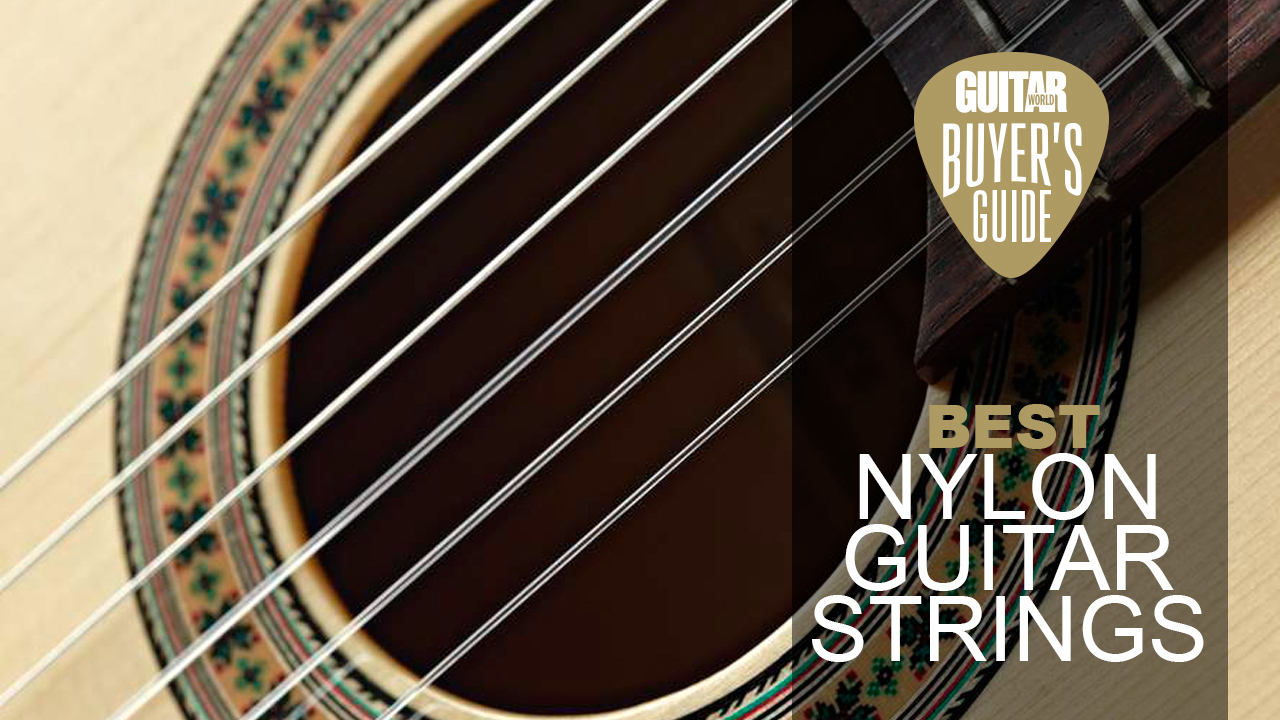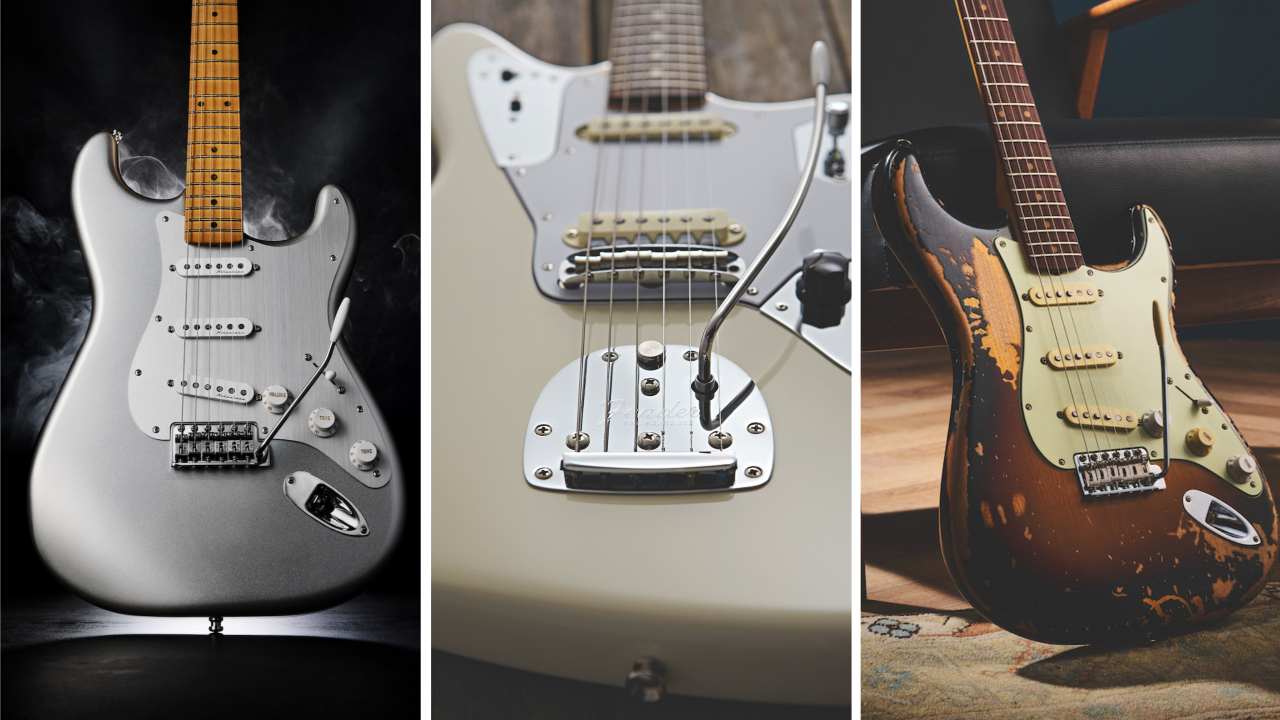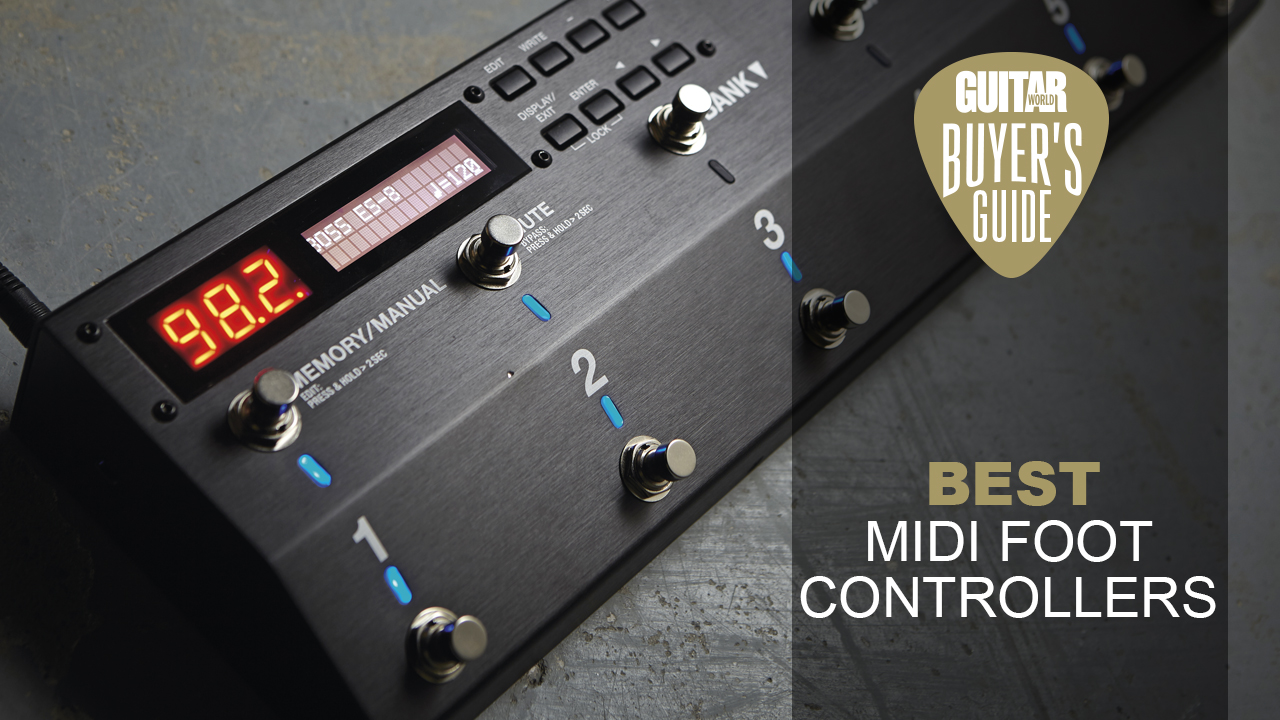Best basses for metal 2025: our selection of the best basses for heavy music across all budgets
From Rickenbacker to Ibanez and Schecter, our picks of the best metal basses will help you sound heavier than ever before
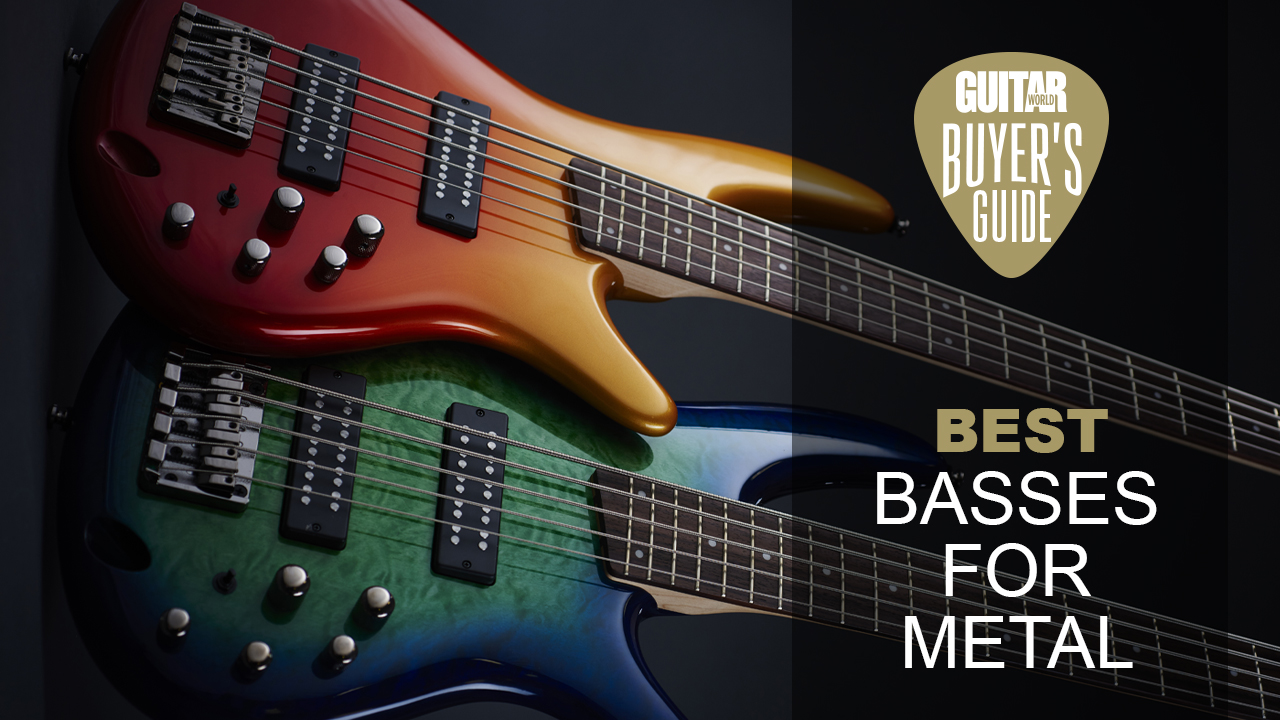
Choosing the best bass guitar for metal can be a tricky process. After all, with so many different variations within the genre, it can be difficult to home in on the perfect bass for your needs. What works for old-school thrash won’t necessarily suit downtuned progressive technical styles, and vice versa.
But today is your lucky day! We've drawn on our years of experience to provide you with the knowledge, tips, and advice you need to find the best bass for every metal genre. Also, we’ve rounded up eight great examples of bass guitars for metal, including some true legends of the genre from brands like Rickenbacker, Warwick and Ibanez, with a keen eye on finding the best value and tonality suitable for heavy styles.
There are certainly basses out there that are chameleon-like, blending seamlessly into various genres. The Ibanez SR305E is one such bass, easy to recommend for its simple, straightforward design. It combines great construction and build quality with a wide range of highly usable metal tones – all at a very sensible price.
If you’re after specific advice, head down to our FAQs section, where we explain some of the common conundrums and typical headscratchers for metal bassists.
Our top picks
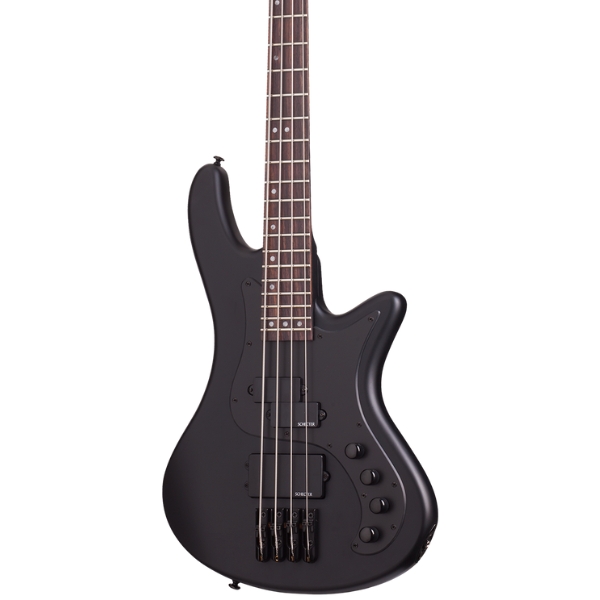
Combining fantastic tone, great value for money, and looks that will fit right in with black band t-shirts, piercings, and tattoos, the Schecter Stiletto Stealth makes a great case for being overall the best bass for metal.
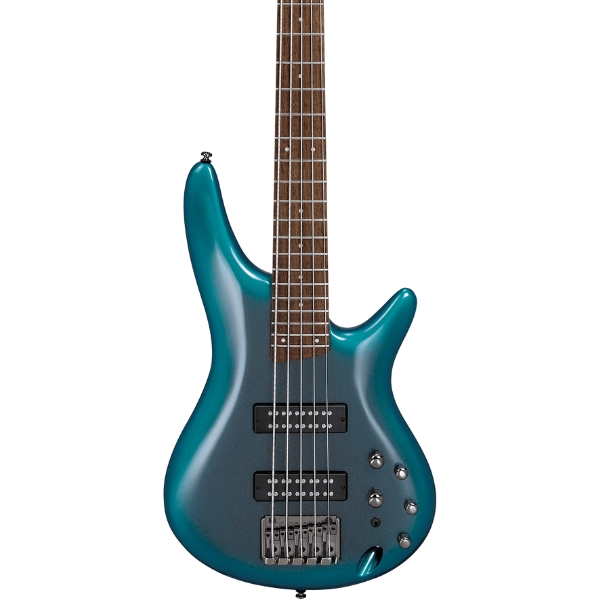
The Ibanez SR305E is easy to recommend thanks to its simple, straightforward approach which marries great construction and build detail with a wide range of highly usable metal tones, all at a very sensible price.
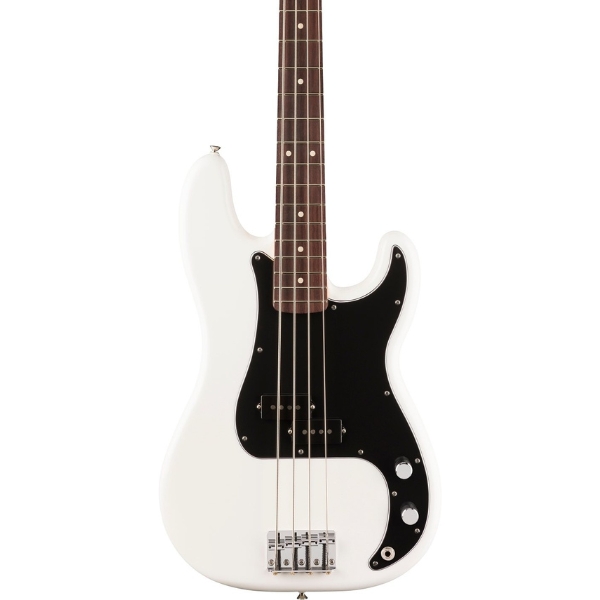
Not every metal bass needs to be spiky. The classic P-Bass has plenty of metal credentials, wielded by bassists from Metallica, Black Sabbath, Gojira, Cryptopsy, and many more. It'll cover many more styles other than metal, too.
Best overall
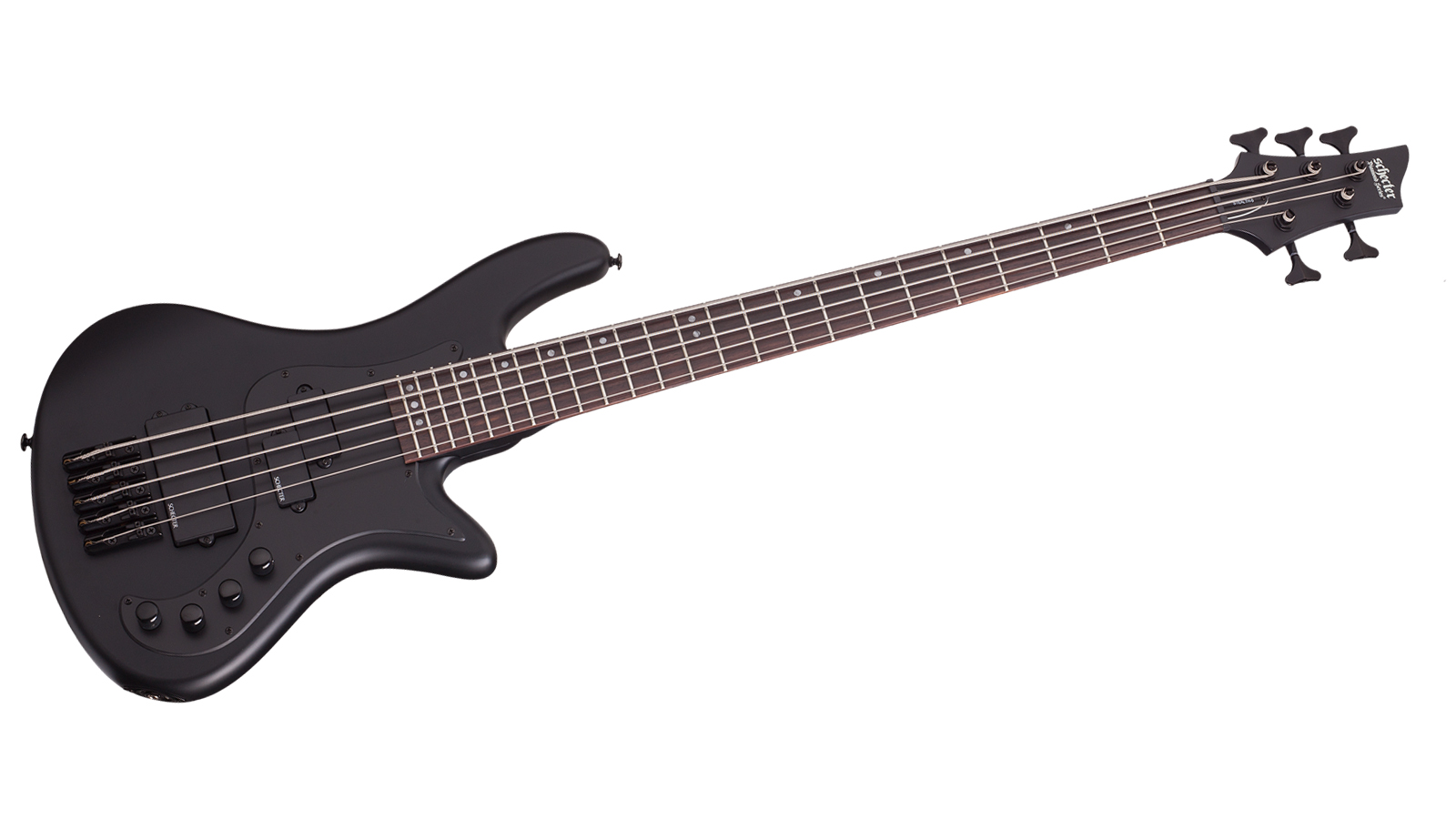
1. Schecter Stiletto Stealth
Our expert review:
Specifications
Reasons to buy
Reasons to avoid
Schecter is a brand with huge appeal to metal musicians, thanks to it finding that perfect balance between edgy aesthetics, great tones, and extremely reasonable prices across the range.
The Schecter Stiletto Stealth, which comes in four and five-string versions, features a lightweight basswood body with a neat satin finish that looks and feels superb. If you're playing more extreme forms of metal then we'd highly recommend getting the five-string version so you can keep up with your guitarists' ultra-low tunings.
Tonally there’s scope for versatility thanks to the combination of an active humbucker and split single coil, while the onboard EQ controls will ensure your sound cuts through in a full band environment.
Although the offset body might not be to everyone’s taste, the Schecter Stiletto Stealth delivers fantastic value for money. If you can get past the body shape, its features make it one of the best options on our list.
Best budget
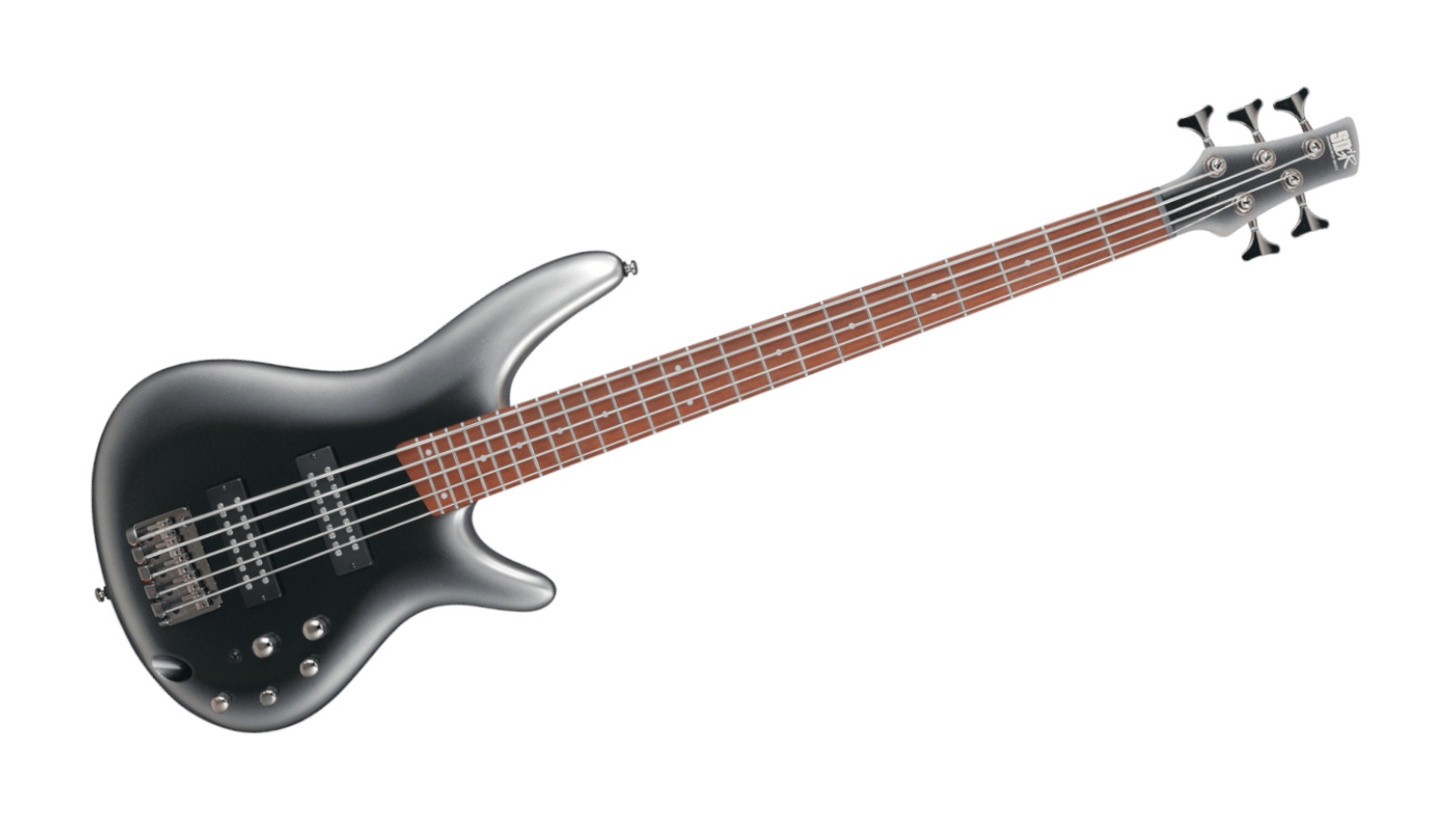
2. Ibanez SR305E
Our expert review:
Specifications
Reasons to buy
Reasons to avoid
While many of the entries in this guide are towards the upper side of the price scale, there’s still great value to be found nearer the entry/mid-range. The Ibanez SR305E, for example, is a lean, stripped-down five-string bass that would be perfect for technical styles of metal.
The wood grain on the weathered black finish is stunning and gives the impression of a bass which means business. The two PowerSpan Dual humbuckers ensure there’s enough tonality to stand out, while the traditional thin Ibanez neck means this is as playable as it is attractive.
For us, this is arguably the perfect ‘next’ bass for someone early on in their metal-playing career and would make a great studio bass for guitarists to have on hand as well.
Best versatility
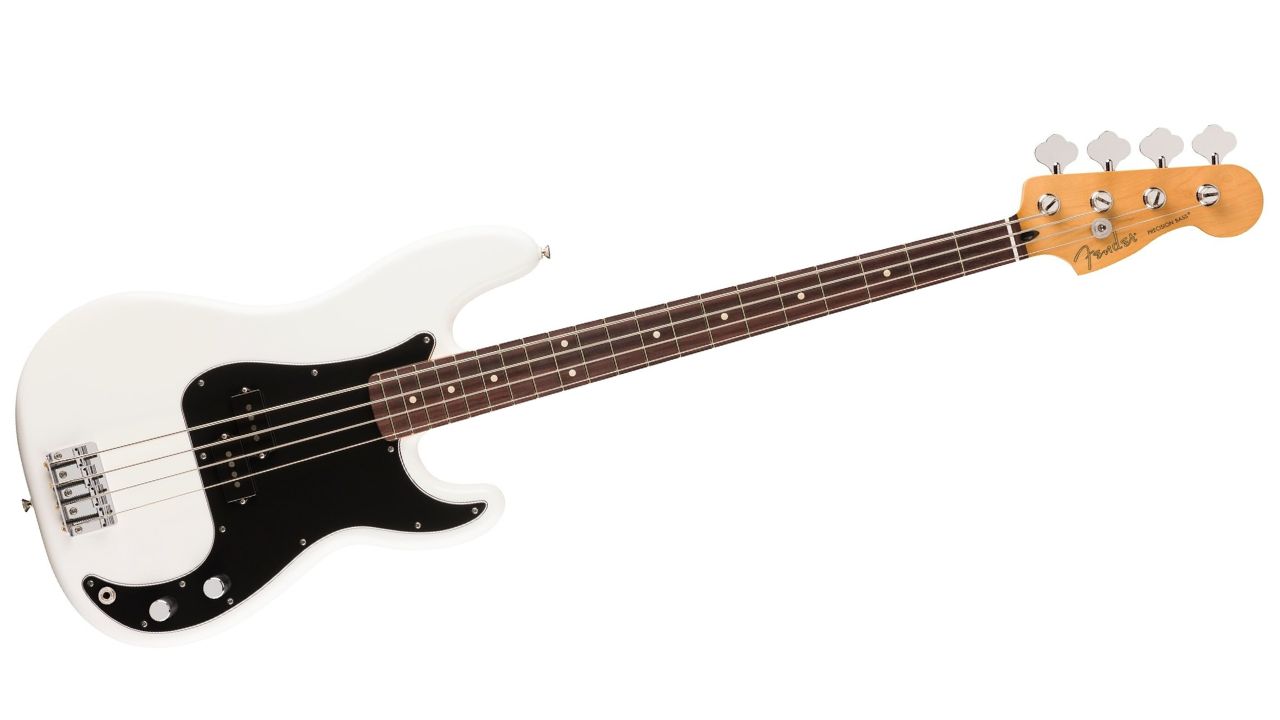
3. Fender Player II P-Bass
Our expert review:
Specifications
Reasons to buy
Reasons to avoid
Not all metal basses have to be spiky and black! The Fender Player II Precision Bass is a phenomenal all-rounder, and has found use in bands like Metallica, Black Sabbath, Gojira, and many more - not a bad list of metal bands.
The newest update for the Fender's most popular line of instruments sees the welcome return of the Rosewood fingerboard, as well as some additions from the Player Plus line. That means you get rolled fingerboard edges for extra comfort.
You might be forgiven for thinking the P-Bass' split single coil wouldn't have enough heft for metal but trust us, this thing really growls. It's got plenty of low-end heft that will help underpin those heavy riffs, and best of all you can use it on a variety of styles, not just metal.
Best under $1,000
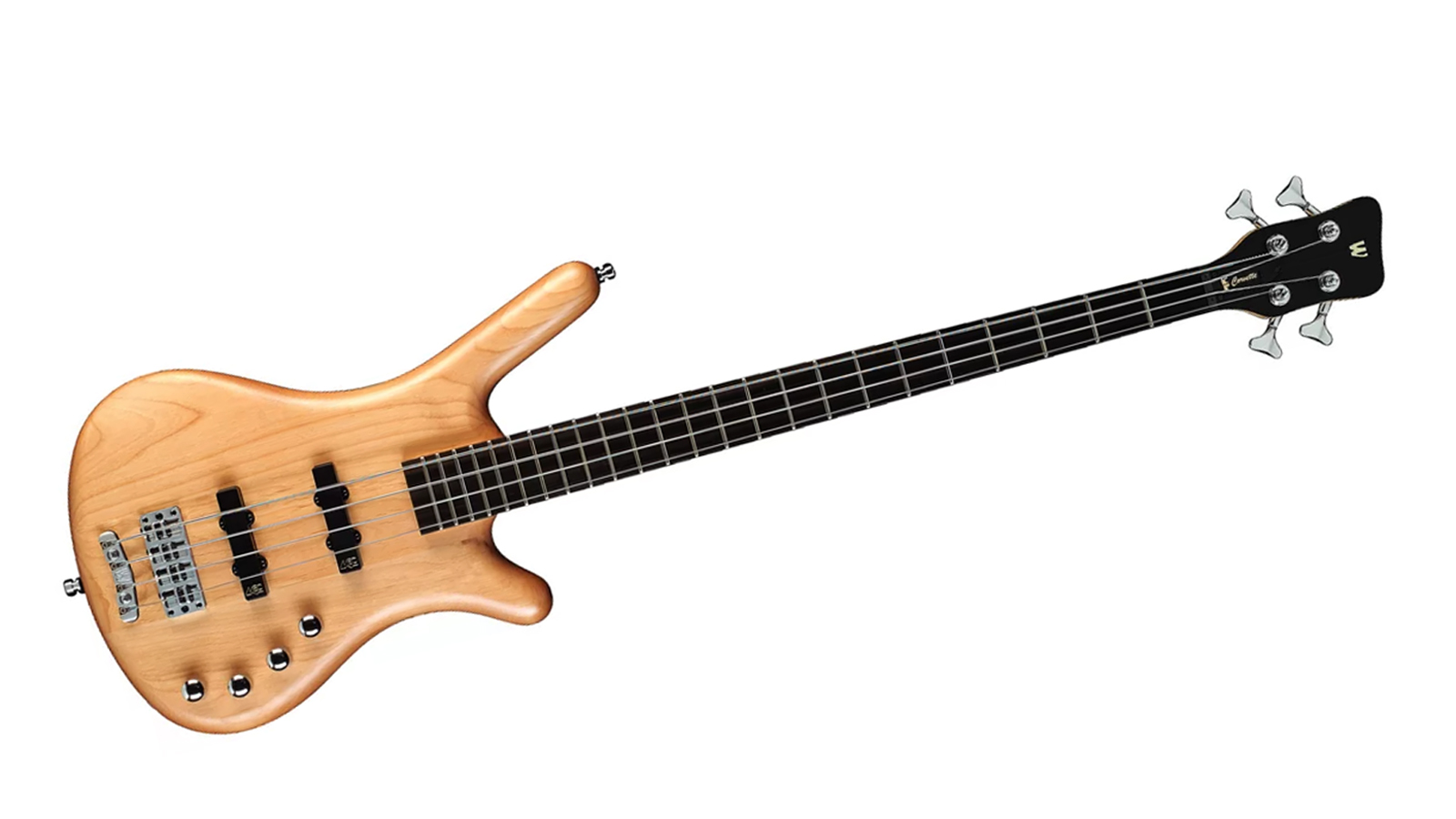
4. Warwick Rockbass Corvette
Our expert review:
Specifications
Reasons to buy
Reasons to avoid
Not everyone who plays in a metal band wants their bass to look like something out of a horror movie. The Warwick Rockbass Corvette might look if we’re being brutally honest, quite plain, but once you start playing it, you’ll be left with no doubt that this is a perfect bass for metal.
The alder body keeps it lightweight and comfortable, yet when combined with the active MEC J/J humbuckers, the Corvette packs a serious punch. While the German-made Warwick models can cost thousands, these Chinese-made versions still maintain that incredible build quality and attention to detail yet can be picked up for a much less wallet-straining amount.
Although the Rockbass Corvette may not appeal to the aesthetic ethos of your average black metal bassist, it’s an all-around brilliant value-for-money bass. Highly recommended.
Best high-end
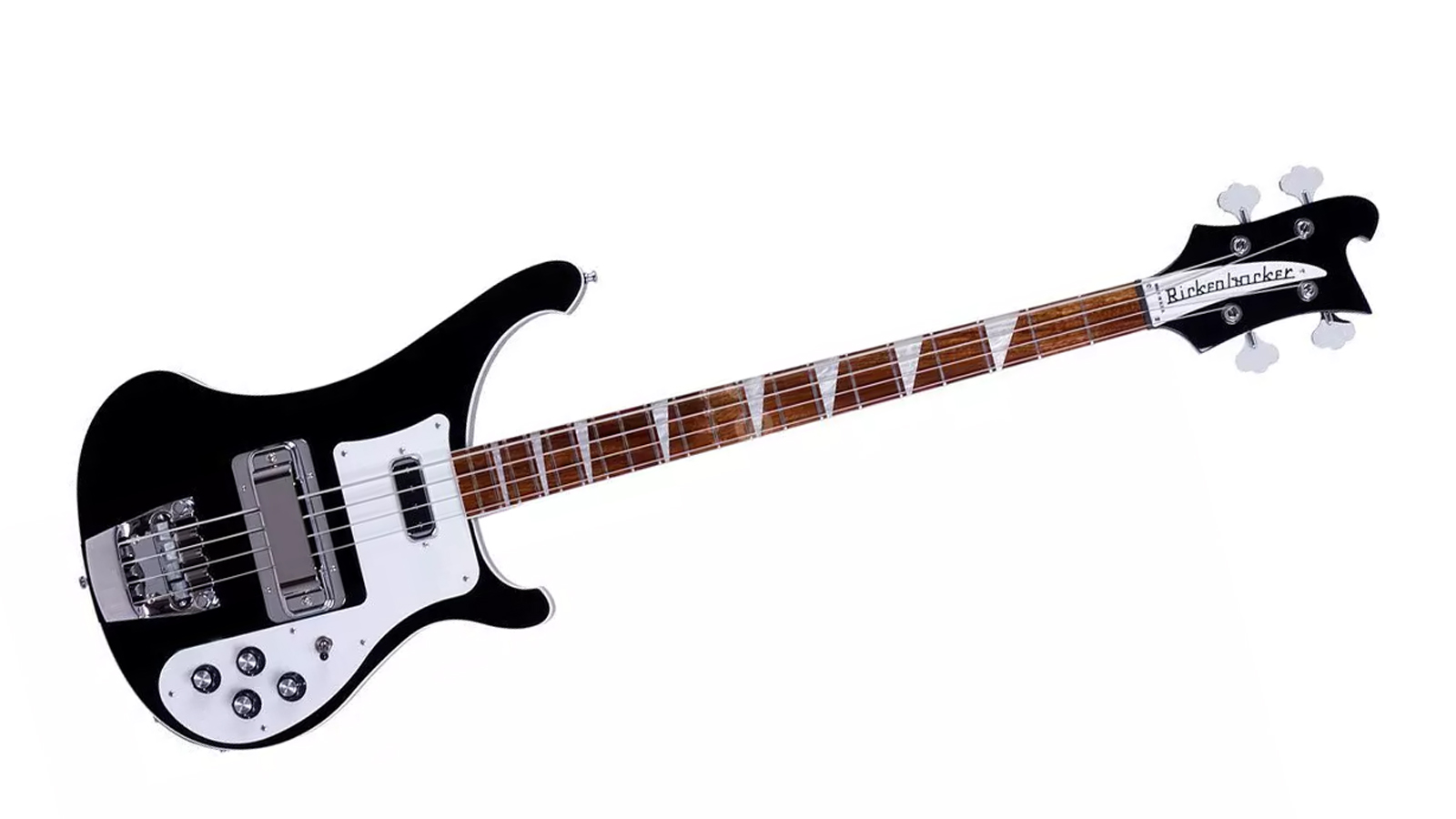
5. Rickenbacker 4003
Our expert review:
Specifications
Reasons to buy
Reasons to avoid
One from leftfield, perhaps, but the Rickenbacker 4003 is definitely worth your attention as a bass for metal. After all, if it’s good enough for Lemmy, it’s surely good enough for you.
Essentially what you get is a maple body with maple neck-thru construction, which gives it bags of natural sustain while the two single coil pickups and tone-shaping features give it plenty in the way of versatility.
Realistically, with its single coil pickups and slightly shorter scale length, you’re not going to see too many users dropping the tuning past C and getting great results but for stoner, sludge and other slower styles – with a fuzz pedal in the chain - there’s a lot to love here.
Best extreme
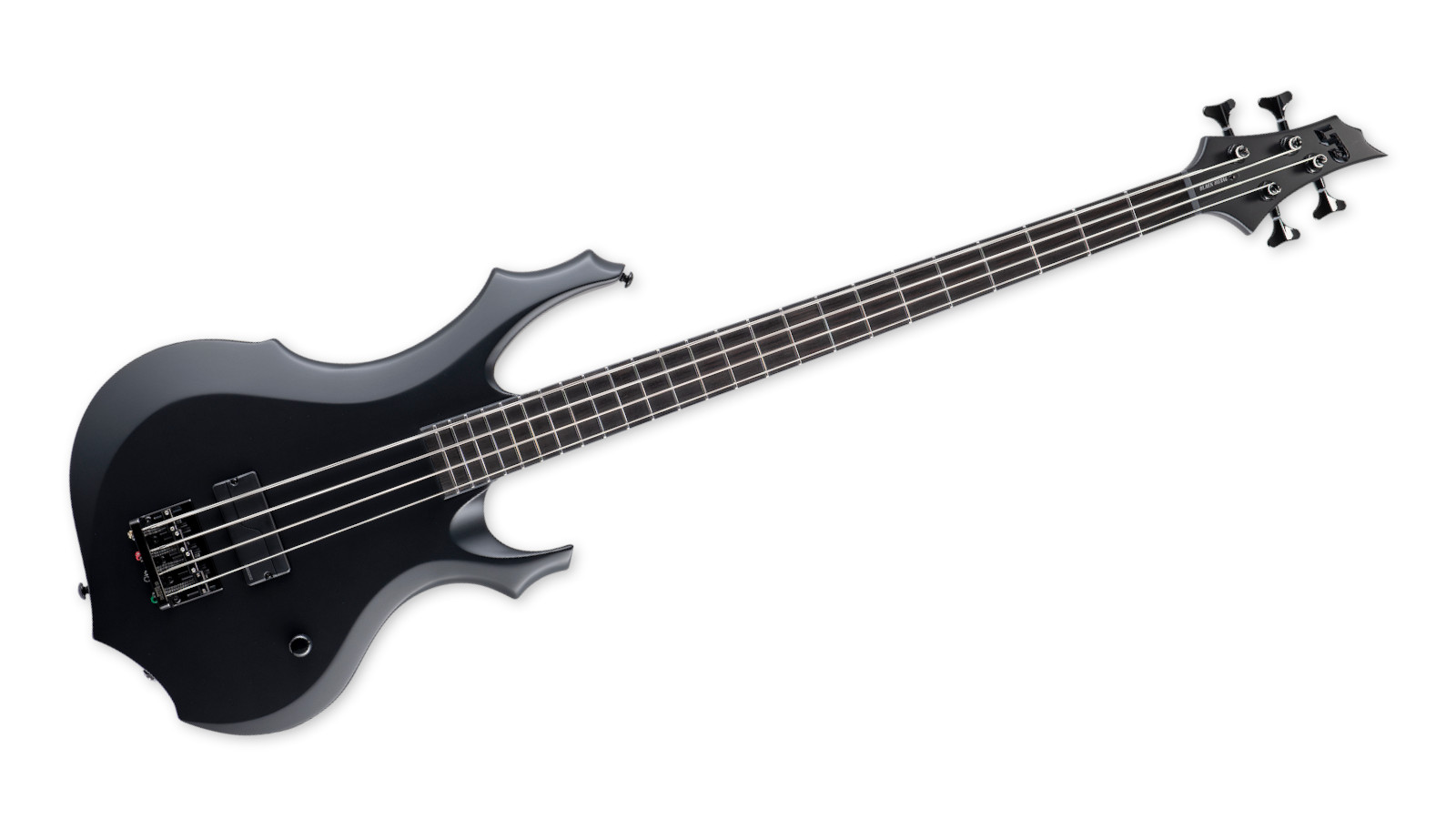
6. ESP LTD F-4
Our expert review:
Specifications
Reasons to buy
Reasons to avoid
If you’re into death, black, grindcore or slam (you get the picture), then the ESP LTD F-4 is the best bet for you. This gnarly-looking bass has all the jagged edges you need to make you look the meanest bassist out there. Unlike similar designs that verge on garish, the F-4 remains sleek and sophisticated.
It’s a pretty simple layout, as the meaty Fishman Fluence SB-1 is controlled by a solitary volume control. Although it’s a push-pull pot, splitting the pickup into a single coil for more versatility than you’d expect from a bass like this. The neck-thru-body construction offers plenty of sustain and the long 35” scale length allows for some brutal downtuning.
The neck is incredibly slim, allowing you to zip up and down at speed, and the hardware is top-notch, with stainless steel frets, Grover tuners, and a Gotoh bridge, making this bass ideal for extreme metal.
More options...
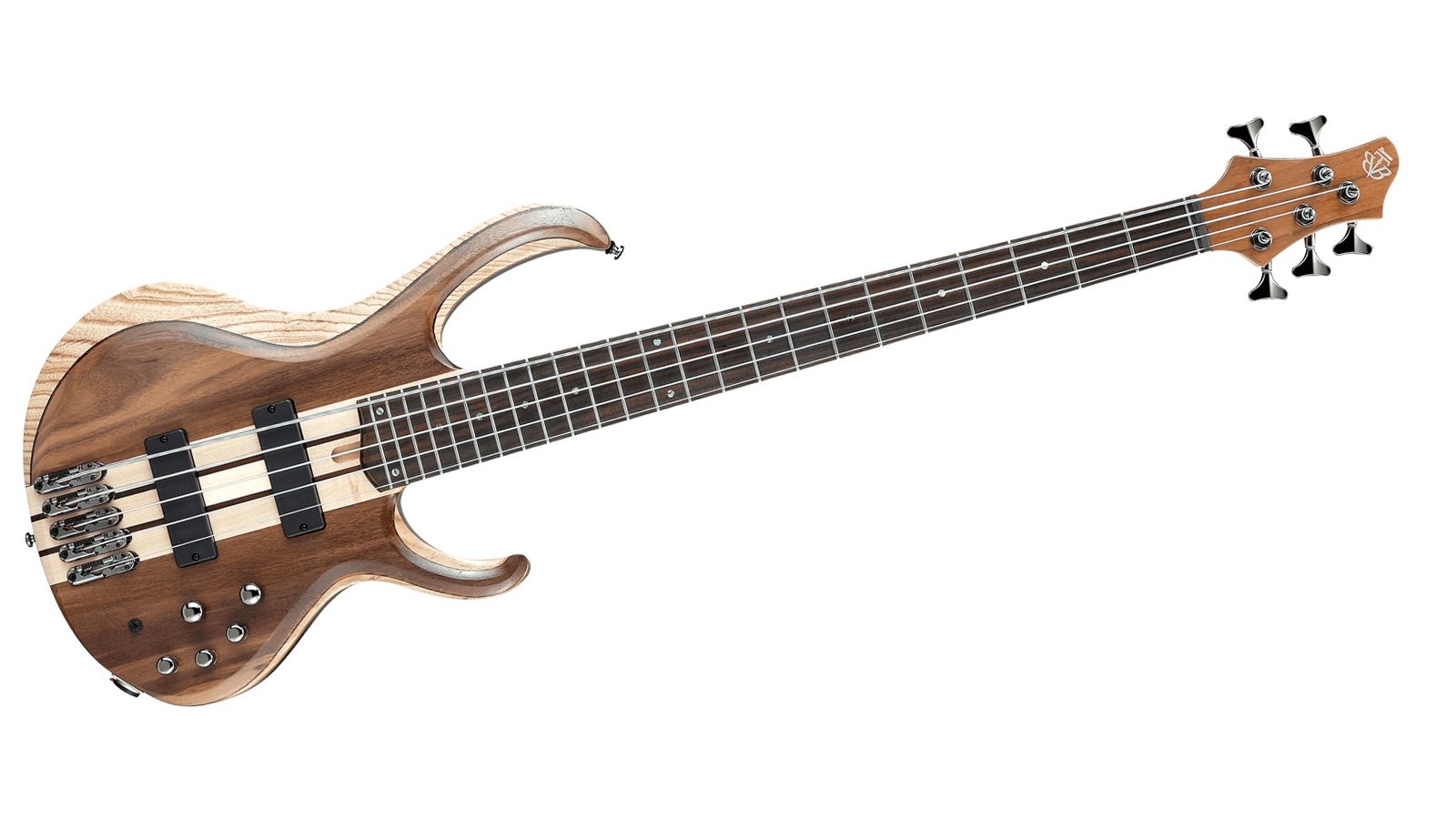
7. Ibanez BTB745
Our expert review:
Specifications
Reasons to buy
Reasons to avoid
If there’s one thing Ibanez can claim, it’s that it knows how to make instruments designed for metal music. The Ibanez BTB745 is a curious-looking bass, all extended horns and different tonewoods, with an attractive maple and walnut neck-thru design which will ensure killer sustain and rigidity.
The two Bartolini active humbuckers ensure the BTB745 can dish out some serious weight with its tone, and there are some nice small touches like the locking input jack connector. However, talking about weight, this thing is not feather-weight, it’s quite a lump, so make sure you pick up a comfortable strap along the way.
Overall, this is a big, bold bass which we can see being popular with technical metal bands and artists on account of its tonal versatility and glorious neck.
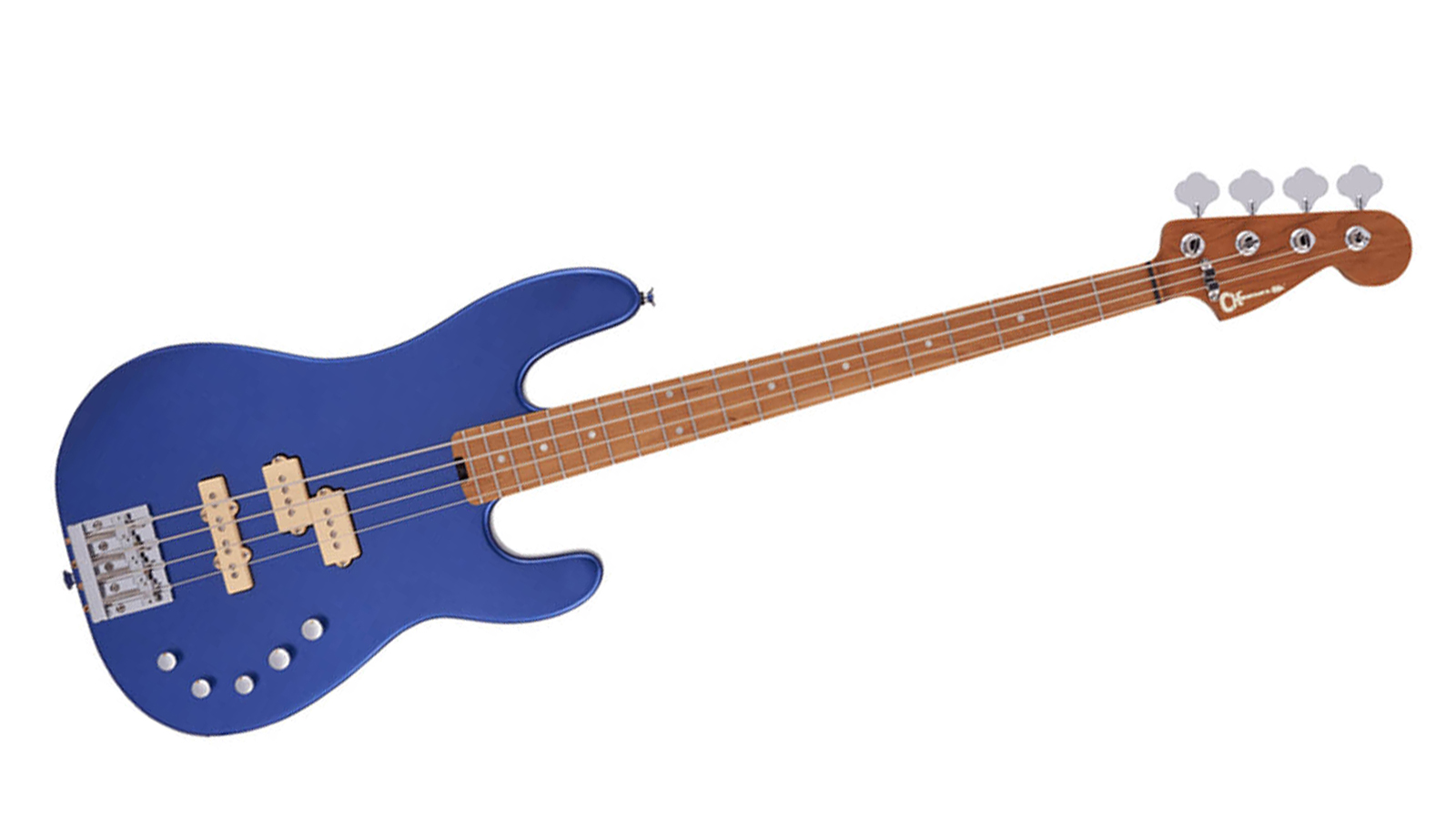
8. Charvel Pro-Mod San Dimas PJ
Our expert review:
Specifications
Reasons to buy
Reasons to avoid
Metal isn’t a new thing. Far from it. In the 1970s and ’80s, there were bands doing things to heavy music that, at the time, seemed unfathomable. One of the leading guitar brands of the era was Charvel, which recently underwent a revival and brought with it a sweet collection of vintage metal-themed guitars and basses.
The Charvel Pro-Mod San Dimas is a great example of this, and we can see it providing the hefty backbone to many galloping riffs.
The rather garish color options give you a hint of the players who’d look to a Charvel; this is a bass designed to stand out, so you’ll need a touch of flamboyance in your repertoire. Special mention to the caramelized maple neck and fingerboard too, which make a nice change from the usual maple and rosewood offerings.
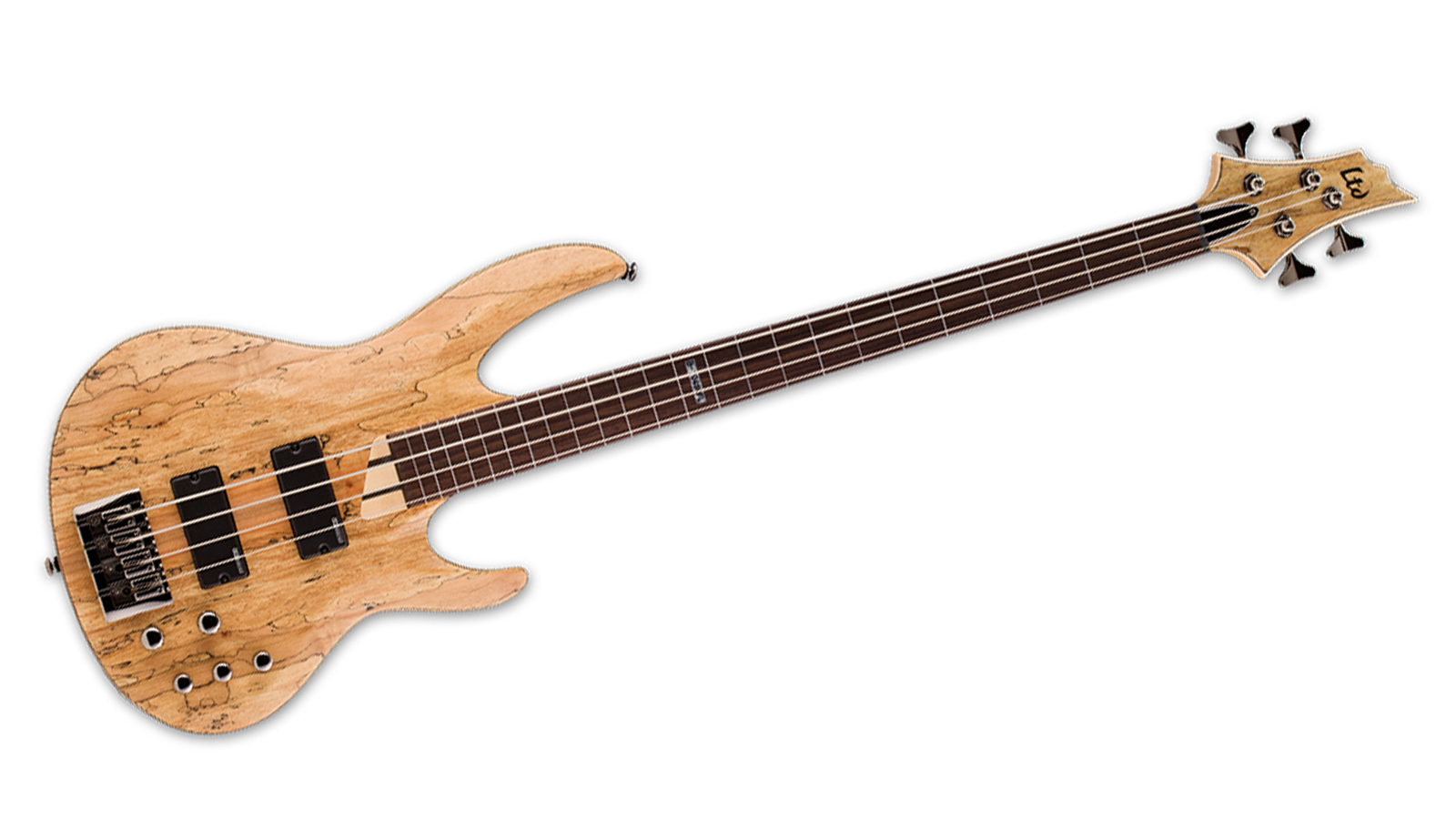
9. ESP LTD B-204
Our expert review:
Specifications
Reasons to buy
Reasons to avoid
When you’re looking at mid-range, mid-priced guitars, you’re looking for a touch of versatility. Decent build and great tones are useful, of course, but around this price bracket, you tend to find guitars and basses that will cover a lot of ground. The ESP LTD B204 fits the bill perfectly here.
While it is, clearly, geared towards metal thanks to its active humbuckers and lithe, playable neck, this is also a bass that can capably step into other genres when required.
Judged purely on its metal credentials, the B-204 is a superb bass, especially for the money. We’d have liked LTD to offer something a bit more eye-catching from its finishes, but overall, there’s a lot to like here.
FAQs
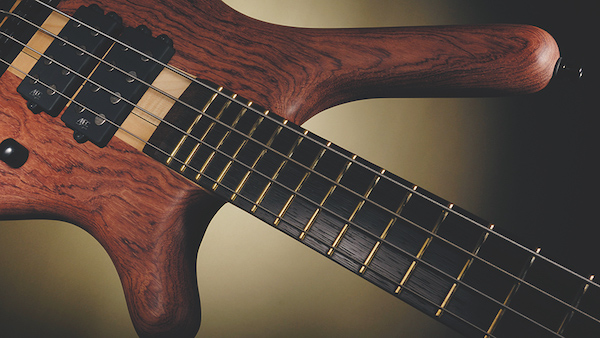
How to choose the best bass for metal
You can trust Guitar World
Regardless which genre or style of music you play, bass and drums provide the backbone upon which everything else is built, and metal is no different. Often, however, bass players in metal bands face the tricky situation of fighting over the low-end frequencies. For many - arguably most - bands in this world, the style dictates guitars being downtuned ever further which can make it easy for the guttural heft of a bass to get lost among the noise. It makes sense, therefore, to arm yourself with a bass guitar which can stand out.
Most of the best basses for metal we’ve chosen feature on-board electronics which help boost your tone before it reaches the amplifier, thanks to extra EQ controls on the bass itself. Active pickups work by including a pre-amp, powered by a 9v battery, which gives you much more tonal flexibility, both when playing at higher volumes and at lower tunings. And, speaking of downtuning, we’ve also included a couple of models which offer five strings instead of the usual four. This extra lower string means you can comfortably reach those lower tunings without sacrificing string tension, making the bass relatively easier to play.
With some styles of metal requiring almost superhuman levels of dexterity and precision from the player, we’ve opted for comfort and ergonomics. While bass guitars are inherently large and sometimes cumbersome, the metal basses we’ve chosen favor comfort and give the player a platform for speed. Much as certain guitar brands are famed for their lithe, playable necks, so too the bass equivalents feature certain characteristics designed to support certain playing styles.
Are 5-string basses better for metal?
If you've always played a 4-string bass, you may have noticed the widespread use of 5-string bass guitars in the metal genre. You might be wondering, are 5-string basses better? The answer depends on who you ask, as it's largely a matter of preference. However, many metal bassists prefer 5 strings because they offer a wider note range, particularly in the lower registers where the sound can get nice and growling.
5-string bass guitars often have longer scale lengths also, which will allow for easier drop tuning. Also, the extra extended range allows you to play riffs in different positions, opening up the possibility of faster movements for your chugging bass solos. Although a 5-string bass isn’t a necessity for metal, there are plenty of benefits that may make your life easier.
Can I use a passive bass for metal?
Absolutely. While active preamps or pickups in a bass are incredibly versatile and often preferred in metal for their punchy and aggressive tone, a passive bass can work just as well, depending on the sound you're aiming for. Take Lemmy Kilmister of Motörhead and Steve Harris of Iron Maiden, for example, two metal legends who have made their mark on the genre with passive basses. If it’s good enough for them, it’s certainly good enough for anyone looking to play metal.
Passive basses often have a rawer, more organic tone compared to their active counterparts, which can be ideal for certain styles of metal. That said, passive basses might be more suited to traditional heavy metal rather than more extreme subgenres like death or black metal, where the extra tonal shaping provided by active electronics can help you achieve the crushing low-end and searing high-end that those genres often demand.
How we test
When testing a bass guitar for metal, we'll take a very similar approach to that of any regular bass guitar. There will be some extra steps to ensure its right for the genre of course, but most bass guitars can do a usable metal tone as the instrument itself is so versatile.
First up we'll be looking at the build quality of the instrument in question. This means inspecting each component of the guitar in detail, from the body composition, the neck and fretboard quality, to the way the electronics have been installed.
This lets us know that due care has been paid when putting it together, as well as providing a base for our review by allowing us to to see how the various features make it a whole.
Next we'll start to actually play it, testing the neck and fretboard feel with a variety of riffs, licks, and chords. With it being a bass we'll try various bass-specific techniques too, like slap bass and the various muting techniques associated with bass.
Then we'll focus on the sound of the instrument. Plugging it into our favorite bass amp, as well as trying it with DI pedals and amp modelers too. This gives us a great overview of the vast majority of ways the end user will play it, allowing us to generate a complete picture of its tonality.
We'll try various effects pedals too to see how it reacts to those, whether its an octave effect or a chorus pedal. Again, this allows us to judge how it will react in the real world, as most players will use some kind of effects pedals in their rigs.
We'll also spend at least two weeks with the instrument, getting to know it really well so we can get over the honeymoon period of a new guitar. This allows us to make those criticisms that will only be noticeable when you've played it for some time.
Read more about our rating system, how we choose the gear we feature, and exactly how we test each product.
Related buyer's guides
- Work on your chops with the best bass amps for practice
- On a budget? Take a look at the best budget bass guitars
- Our pick of the best 5-string bass guitars
- These are the best bass compressor pedals
Get The Pick Newsletter
All the latest guitar news, interviews, lessons, reviews, deals and more, direct to your inbox!
Chris Corfield is a journalist with over 12 years of experience writing for some of the music world's biggest brands including Orange Amplification, MusicRadar, Guitar World, Total Guitar and Dawsons Music. Chris loves getting nerdy about everything from guitar gear and synths, to microphones and music production hardware.
- Matt McCrackenJunior Deals Writer
- Ross Holder
“Affordable versions of the three best basses I've ever held in my hands”: Sterling by Music Man completes its trilogy of Joe Dart signature models with a trio of made-to-order basses that cost less than $500
“The ace up the sleeve of bass players around the globe since 1978”: Tobias instruments were trailblazers in the bass world. Now they’re back as part of the Gibson family

